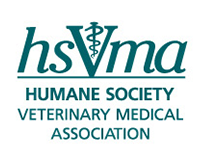HSVMA Supports Ban on Non-Therapeutic Devocalization in MassachusettsMay 7, 2010 Cats and dogs will no longer be subject to unnecessary and potentially harmful surgical devocalization procedures in the state of Massachusetts when H.B. 344, a bill to ban non-therapeutic devocalization, takes effect by the end of July. HSVMA was joined by more than 210 individual Massachusetts veterinarians in endorsing H.B. 344 prior to its passage by the Massachusetts Legislature earlier this year. Massachusetts Governor Deval Patrick signed the bill into law in April. H.B. 344 was sponsored by the Coalition to Protect and Rescue Pets, a grassroots animal protection group in Massachusetts, as well as 30 humane societies and animal shelters in the state. "Governor Patrick and the Massachusetts Legislature have demonstrated their leadership role in promoting the welfare of companion animals by adopting H.B. 344 and taking a stand against devocalization procedures which are typically performed for the convenience of caregivers and provide no medical benefit to the animal," said Dr. Barbara Hodges of HSVMA. HSVMA supported H.B. 344 as part of its campaign to end the practice of performing unnecessary cosmetic and convenience surgical procedures on companion animals. In addition to devocalization, such procedures include ear cropping and tail docking of dogs and cat declawing. HSVMA's focus is to educate pet owners about the risks involved in such procedures and the many available alternatives. For example, devocalization exposes the animal patient to the possibilities of infection and blood loss, the risks of anesthesia, and can lead to scarred vocal cord tissue regrowth known as "webbing." Potential long-term physical consequences include chronic coughing and gagging, breathing difficulties and exercise intolerance. "There are other, much more humane ways to deal with barking and other vocalization issues than subjecting an animal to a risky and painful procedure," said Dr. Nicholas Dodman, a veterinary behaviorist and HSVMA Leadership Council member. "Since boredom and a sedentary lifestyle are often the cause of excessive vocalization, environmental enrichment, obedience training, exercise and humane behavior modification can be utilized to address the problem rather than attempting to surgically alter the animal." Read more about devocalization. |
